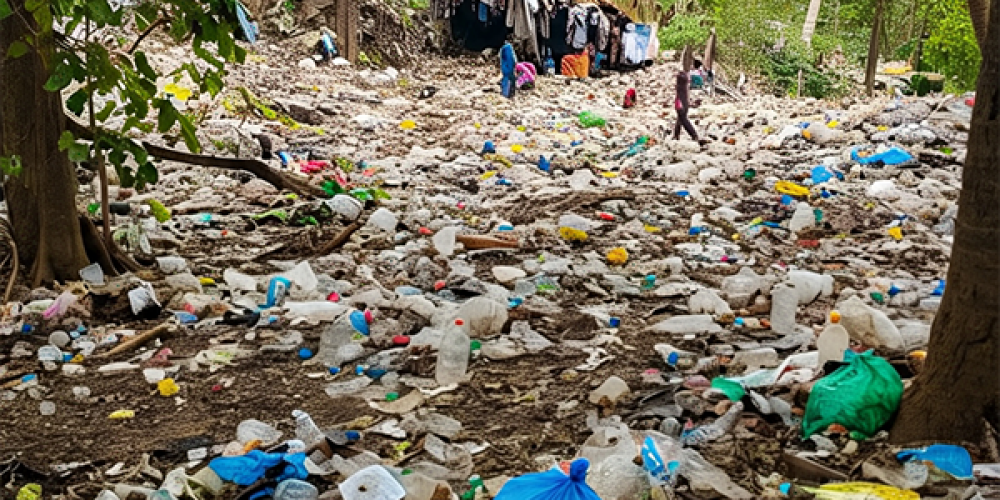Plastic pollution has become a pressing global issue, affecting not only the environment but also human health. The production, use, and disposal of plastics contribute to climate change, contaminate soil, and pose serious health risks to humans.
Plastics and Climate Change
The lifecycle of plastics, from production to disposal, contributes to greenhouse gas emissions, exacerbating climate change. Plastic production relies heavily on fossil fuels, which release emissions during extraction and processing. As plastics break down, they release methane and ethylene, potent greenhouse gases that accelerate global warming. In fact, plastic production generates significant greenhouse gas emissions, contributing to global warming.
Impact on Soil Health
Microplastics, tiny plastic particles resulting from the breakdown of larger plastics, have emerged as a significant threat to soil ecology. These microplastics disrupt soil structural integrity, alter its physico-chemical properties, and impact soil microbial diversity. This, in turn, affects plant growth, agricultural productivity, and ecosystem balance. Modern farming practices, such as using mulching films and irrigating with wastewater, also contribute to microplastic contamination in agricultural soils.
Effects on Human Health
The toxic effects of microplastics extend beyond soil and plants to human health. When plants take up microplastics from contaminated soil, these particles can be transported to edible parts, posing serious health risks to humans. Research has revealed the presence of microplastics in various human specimens, including blood, saliva, stool, placenta, and breast milk. Exposure to microplastics has been linked to metabolic disorders, endocrine disruption, immunological abnormalities, neurotoxicity, and organ dysfunction.
Health Risks Associated with Microplastics
Some potential health risks associated with microplastic exposure include:
- Microplastics have been found in human tissues and organs, raising concerns about their potential to cause cancer.
- Microplastics can contaminate food and water, leading to gastrointestinal problems.
- Microplastics have been linked to cardiovascular diseases, including heart failure.
- Exposure to microplastics has been found to change reproductive behavior and interfere with normal growth and development in animals.
What Can We Do?
To mitigate the impacts of plastic pollution on climate change, soil, and human health, we need to adopt a multi-faceted approach ⁴:
- Promote responsible consumption habits and minimize single-use plastics.
- Enhance recycling infrastructure and implement effective waste management systems.
- Encourage the development of eco-friendly materials and innovative solutions to address plastic pollution.
- Collaborate globally to tackle plastic pollution comprehensively and implement effective policies.
By understanding the far-reaching consequences of plastic pollution and working together to address this crisis, we can safeguard our planet for future generations.


